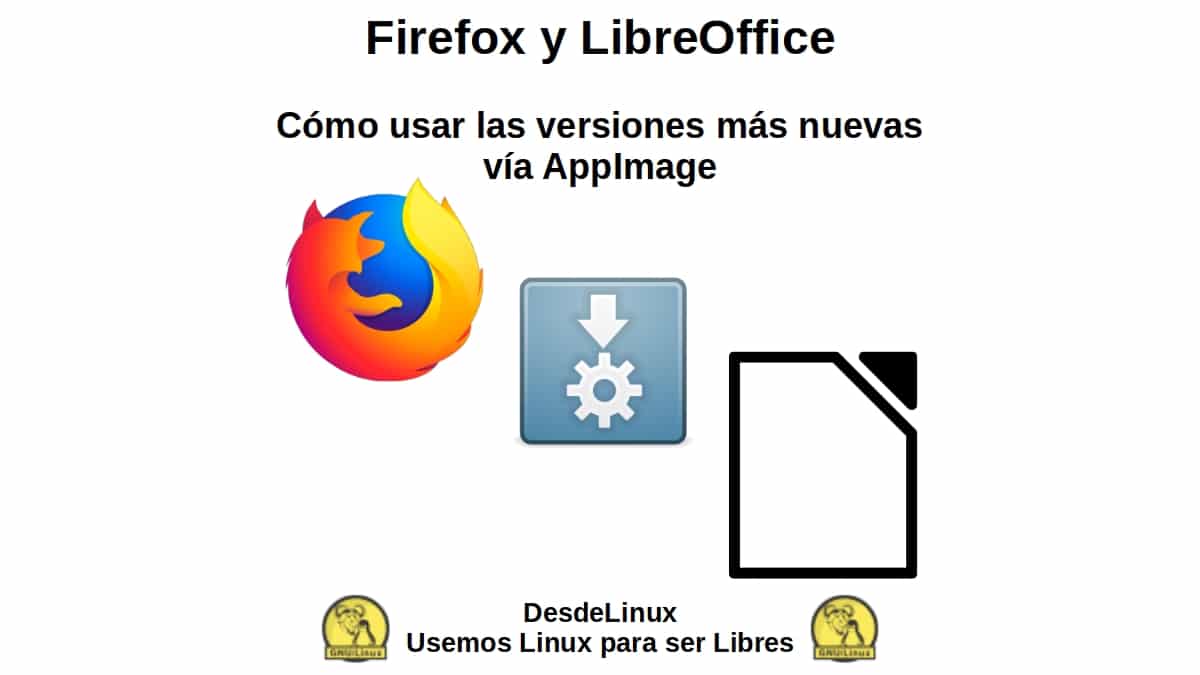
Firefox and LibreOffice: How to use the newer versions via AppImage
When we use any computer, both at work and at home, 2 of the most essential and used types of applications are usually the Web browsers and Office Suites. Which is perfectly logical and valid, since the average home or office user, usually uses these with predilection. Either to browse and upload, download or view information. Or, to open, create, modify and print files of different formats for your needs and requirements.
Therefore, applications like Firefox and Libre Office in their newer versions, they tend to be mostly in GNU / Linux vitally important. And for this purpose, the use of installation files of type AppImage, as we will see below.
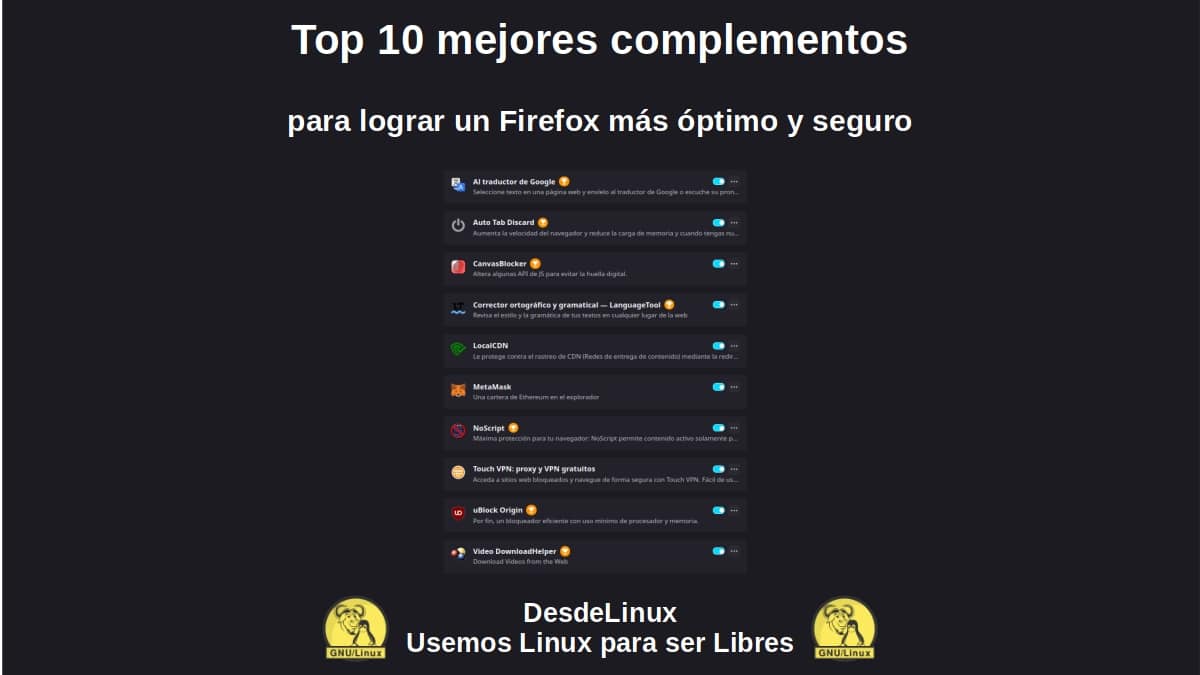
Top 10 best add-ons to achieve a more optimal and secure Firefox
And as usual, before diving into today's topic on the use of Firefox and Libre Office in its newest versions, through the use of files in .AppImage format, we will leave for those interested the following links to some previous related publications. In such a way that they can easily explore them, if necessary, after finishing reading this publication:
"Firefox is usually the default web browser of many, for almost everything that is usually done on the Internet on GNU/Linux, both for work and just to pass the time. Therefore, knowing which add-ons or extensions (plugins) allow you to have a faster, more versatile, more productive and more functional web browser is extremely important and useful.". Top 10 best add-ons to achieve a more optimal and secure Firefox


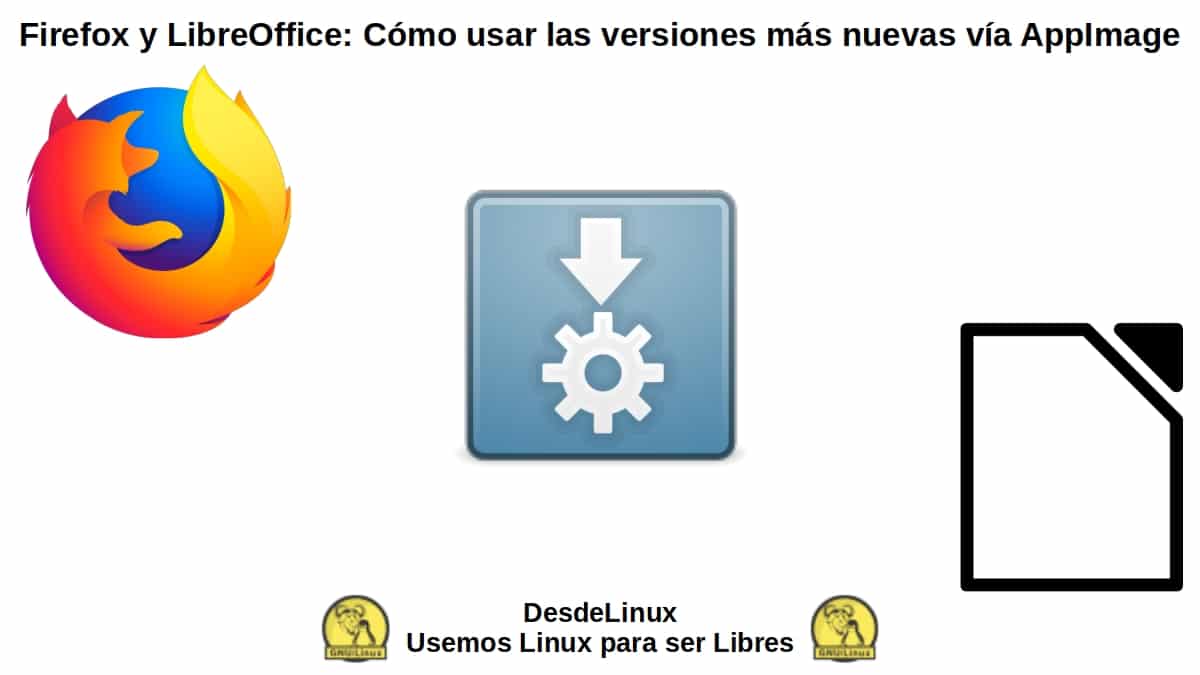
Firefox and LibreOffice: Essential Apps in any Distribution
Why use modern versions of certain applications on old Distros?
A large sector of users tend to use Distros with Extended Support (LTS). Others, and surely the majority, usually have GNU / Linux Distros that over time they stop receiving normal and security updates. Above all, of certain essential or important applications, such as, Firefox and Libre Office. Or they receive them in increasing times.
which forces many to change version or distribution, in order to obtain the necessary updated versions of these applications and many others. However, for others this may not be as easy or desirable, ie migrate. And consequently, it is preferable for them to try to be able to access these modernized and current versions in acceptable ways.
Since, newer or modern versions, usually offer the greatest potential of them, together with best possible compatibility with modern third-party websites and files. Which many times, are made with proprietary and closed technologies.
Thus, for this last sector of users, with old distros o Distros with not so recent application packages, the use of AppImage packages it is the ideal. Because, its employment philosophy can be classified as portable and totally self-contained. While others like Snap or Flatpack, they are not so much.
How to install Firefox using AppImage?
To install the Mozilla Firefox web browser in AppImage format in its most recent version, the following is available AppImageHub Store official link. Or directly, from this other github link.
Once downloaded, and assigned permission to execute as executable to the executable file, we will be able to have the latest official version of it without any problem, execute it with a simple double click of the mouse.
For example, in my personal case, I have tried the latest stable version of the Mozilla Firefox web browser over a Operating system based Debian 8 (called Canaima 5) and it has worked without any problem, and totally in Spanish. As you can see below:
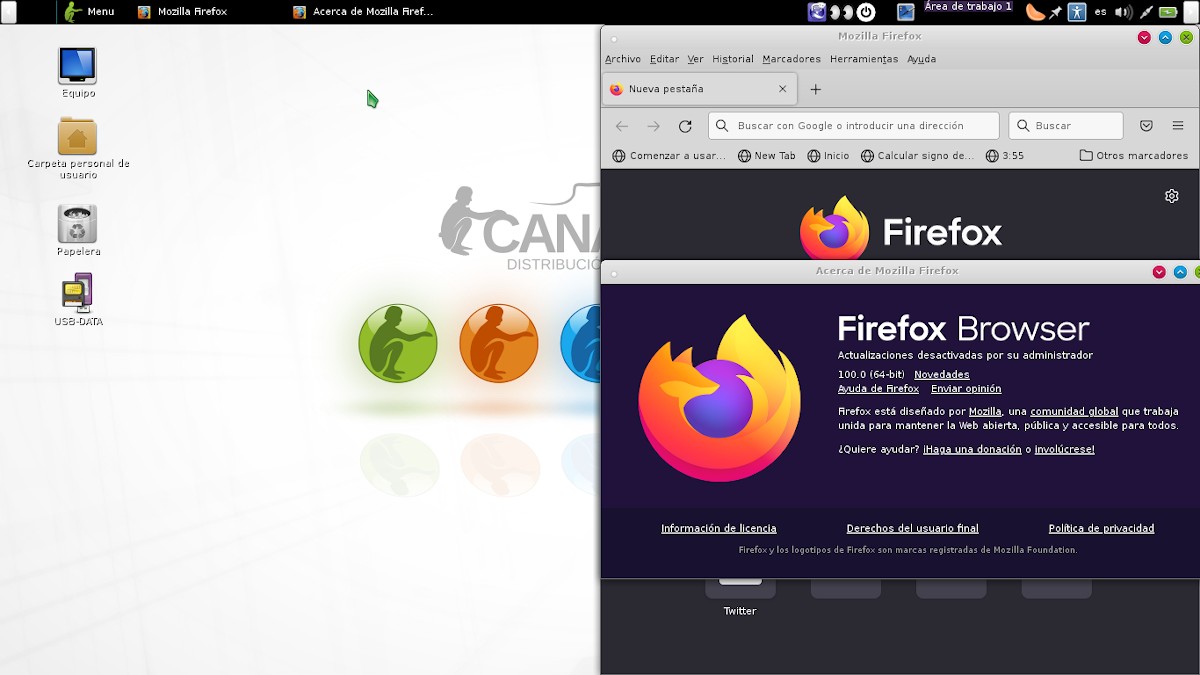
How to install LibreOffice using AppImage?
To install the LibreOffice Office Suite in AppImage format in its most recent version, the following is available official linkl from the LibreOffice website itself.
Once downloaded, and assigned permission to execute as executable to the executable file, we will be able to have the latest official version of it without any problem, execute it with a simple double click of the mouse.
For example, in my personal case, I have tested the latest stable version of the LibreOffice Office Suite over a Operating system based Debian 8 (called Canaima 5) and it has worked without any problem, and totally in Spanish. As you can see below:
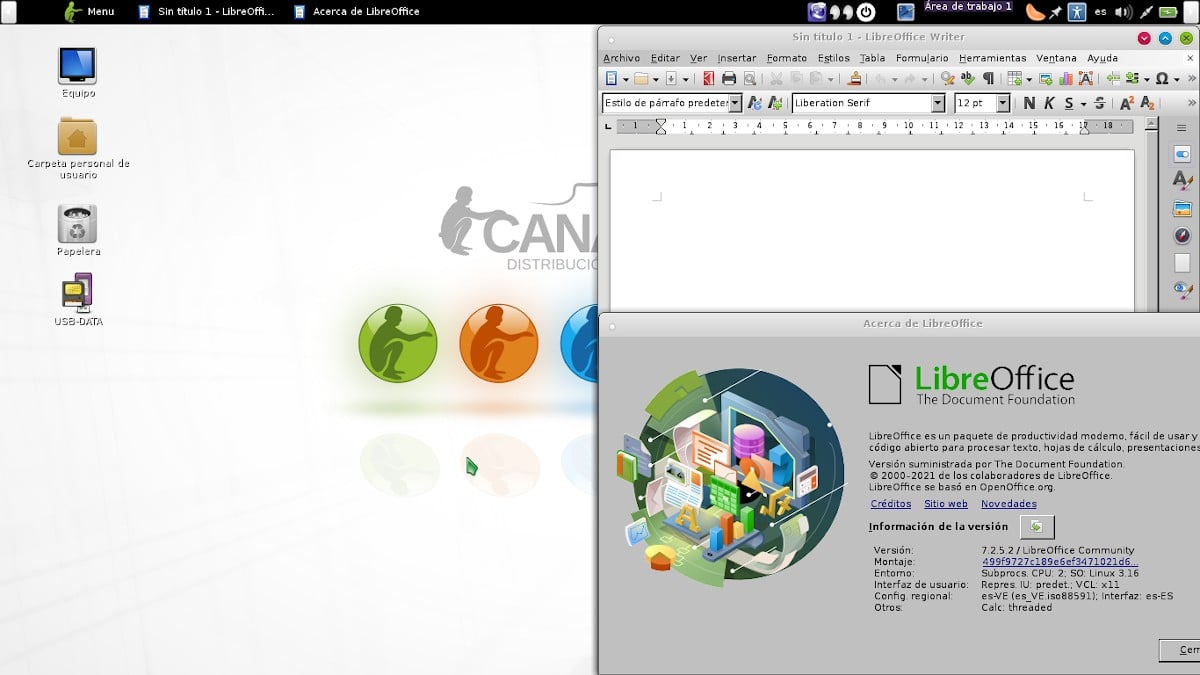
Also, I've tried both. AppImage files over a Operating system based Debian 11 (named MX-21) and it has worked without any problem, and totally in Spanish.

Summary
In short, having the most recent and up-to-date versions of "Firefox and LibreOffice" on the current GNU/Linux Distros used by everyone, regardless of whether they are very old or modern, through the use of files in .AppImage formatIt is something quick and simple. And surely, this will prevent, to a great extent, the obsolescence and disposal of many GNU/Linux distros that are no longer supported and updated.
We hope that this publication is very useful for the entire «Comunidad de Software Libre, Código Abierto y GNU/Linux». And don't forget to comment on it below, and share it with others on your favorite websites, channels, groups or communities of social networks or messaging systems. Finally, visit our home page at «DesdeLinux» to explore more news, and join our official channel Telegram from DesdeLinux, West group for more information on the subject.